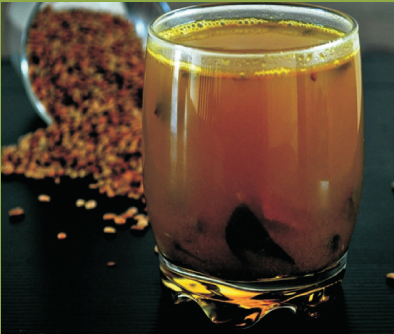 Today’s generation has moved away from traditional foods and it is high time to create awareness about the benefits and importance of minor millets tike Little Millet (Samai in Tamil ), Jowar Millet (Cholam in Tamil) Pearl millet (Varagu in Tamil), Finger Millet (Tinaiin Tamil) etc. And lesser known pulses such as Horse Gram (Kolluin Tamil), Red Lentils (Sivappu Paruppu in Tamil),Sesame (Ellu in Tamil), Field Beans (Mochai in Tamil), Moth Beans (Siru Paruppu in Tamil) etc.
Today’s generation has moved away from traditional foods and it is high time to create awareness about the benefits and importance of minor millets tike Little Millet (Samai in Tamil ), Jowar Millet (Cholam in Tamil) Pearl millet (Varagu in Tamil), Finger Millet (Tinaiin Tamil) etc. And lesser known pulses such as Horse Gram (Kolluin Tamil), Red Lentils (Sivappu Paruppu in Tamil),Sesame (Ellu in Tamil), Field Beans (Mochai in Tamil), Moth Beans (Siru Paruppu in Tamil) etc.
Horse gram is a legume of the tropics and subtropics, grown mostly under dry-land agriculture. It is grown and used mainly in South India. Horse gram is high in protein and iron, which makes it a wholesome food that should be added to our diet on a regular basis. It has calcium, molybdenum, polyphenols, flavonoids, which have high antioxidant capacity and hemagglutinin substance that causes red blood cells to agglutinate. Apart from these, it has carbohydrates, fats, minerals, phosphorus, carotenes and nicotinic acid. Like other legumes, it is deficient in methoioine and tryptophan. It is bitter and acrid to taste.
Benefits of Horse gram
The health benefits of horse gram are being recognized in the western world recently but it has been known for its medicinal purposes by Indian Ayurvedic Vaidyas since centuries. The health benefits and medicinal purpose of horse gram have been recognized by Indian Ayurvedic Medicine and Siddha Cuisine.
• Ayurveda uses horse gram to treat variety of conditions ranging from rheumatism to worm removal. It also helps in treating conjunctivitis and piles.
• Another great benefit of horse gram is its use in extracting phlegm. When suffering with cough, phlegm is a hard thing to get rid of. Taking horse gram water can eliminate the phlegm and give relief.
• Taking horse gram powder in a little bit of water regularly, helps in treating and controlling skin rashes and boils.
• Horse gram liquid also helps in regulating fever.
• It has phenols, which helps in reducing weight.
• Horse gram also helps in lowering cholesterol levels.
• Lipids extracted from horse gram have shown to help in curing peptic ulcer.
• Is also helps in reducing flatulence.
• It is known for its excellent diuretic and astringent aspects. The horse gram water has diuretic properties and dissolves the kidney stones. Diuretics increase the elimination of water from the body. Scientists from the Indian Institute of Chemical Technology have found that unprocessed raw horse gram seeds not only possess anti-hyperglycemic properties but also have qualities which reduce insulin resistance.
• The scientists made a comparative analysis between horse gram seeds and their sprouts and found that the seeds have greater beneficial effects on the health of hyperglycemic individuals.
Preparing Rasam with Horse Gram
Step 1: Dry roast 1 cup of horse gram in a pan for 10 min in a slow flame and coarse grind the horse gram.
Step 2: Boil 2 cups of water, add the coarse powder of horse gram, simmer it for 15 minutes and keep it aside.
Rasam Powder:
Step 3: Grind 1 teaspoon of pepper, 1 teaspoon of cumin seeds, 1 red chili and 3 garlic pieces to coarse power.
Tamarind Mixture:
Step 4: Soak a small lemon sized Tamarind in hot water for 5 minutes and prepare the Tamarind extract with 250 ml of water.
Step 5: Smash 2 tomatoes, break 1 green chilli into 2 halves, ¼ teaspoon of turmeric power, 3 strings of coriander leaves, salt, and rasam powder in to the tamarind extract.
Seasoning:
Step 6: In the pan, add 2 teaspoon of oil, 1 red chili and ½ teaspoon of mustard seeds. Once it sputters, add 2 pinches of hing and 1 string of curry leaves.
Rasam:
Step 7: Add the seasoning to the tamarind mixture and bring it to boil.
Horse Gram Rasam or Kollu Rasam:
Step 8: Finally, add the horse gram mixture to rasam.
Side effects of Horse Gram
• Horse gram can cause an excess of bile production.
• It should not be eaten by pregnant women.
• People suffering with tuberculosis and plethora should avoid horse gram.
India Post News Service






